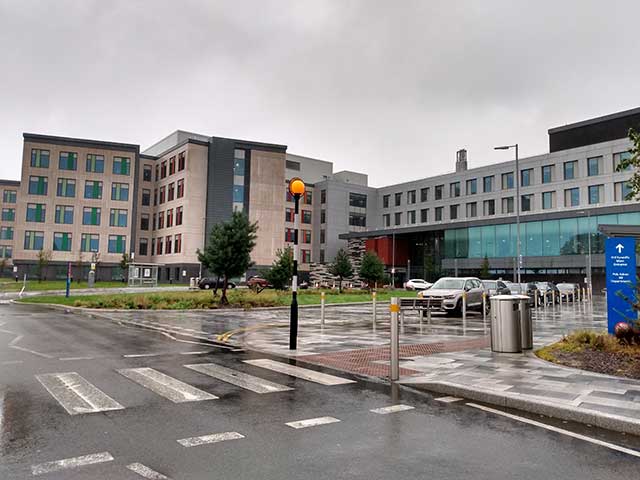THE body that represents patients in Wales has said families need more support to provide care at home as Gwent NHS bosses requested this week.
The Aneurin Bevan University Health Board, that runs NHS services across Gwent, issued what it called an “urgent message” on its Facebook page this week for people to take loved ones, who have been judged well enough to leave hospital, home to care for them.
It says there are currently 300 “medically fit” people in hospital but unable to leave for what it calls “a variety of reasons” which it says is resulting in delays across the system and people waiting in the emergency department at Cwmbran’s Grange University Hospital and in ambulances.
It said the appeal was due to “significant pressures” on hospitals on Tuesday this week and in line with its practice of regularly asking families for support by providing care at home but it appreciates “this will not be possible for some families”.
But Llais Wales – the body that represents the interests of patients – has said more support is required for families to help out the NHS in the way the Aneurin Bevan board had requested and as has previously been called for by Welsh health minister Eluned Morgan.
A spokeswoman for Llais Wales said: “We know that the NHS is under a lot of pressure, and we all need to do our part to help. We also know that people prefer to be in their home rather than hospital, but it’s really important that people are only sent home from the hospital when it’s safe and there are solid plans in place with the patient and their carers.
“There needs to be a lot more support for carers, especially first-time carers, before they feel they can do what the health board asked in the Facebook post.
“To make this happen, all health and social care services need to work closer together. They need to provide smooth and joined-up care to the people who need it most.”
A spokesman for the Aneurin Bevan board said “patients’ best interests and well-being are always at the heart of everything” it does and that being at home, or an alternative care facility, is safer and leads to a quicker recovery for those who no longer need hospital-based care.
But the spokesman said it recognised problems with providing care at home are a significant reason why patients have been unable to leave its hospitals.
The spokesman said: “More than 300 medically fit patients are currently sat in our hospital beds unable to leave hospital for a variety of reasons and often associated with securing the appropriate support at home.
“As there is often delays in securing the additional health and care support required to meet the needs of individuals due to significant staff shortages and a higher demand for care, many patients right across our hospital system are being negatively impacted by these delays – this includes those who are spending prolonged periods in hospital, as well as those awaiting care in our Emergency Department or on ambulances.
“We are working in partnership with our local authority colleagues to address these challenges by identifying all of the available care options for patients in the community.”
The spokesman added it “routinely” asks for the support of families and said: “We also routinely ask for the support of families, where possible, in caring for their relatives at home until the appropriate support is available.
“We appreciate that this will not be possible for some families, which we fully respect, but for every patient that is able to leave hospital with the support of their family, this will improve the flow of patients throughout our hospitals and the quality, safety and efficiency of our care.”
Llais said it has been told the system of leaving hospital and into care, which also relies on assessments by local authorities, “isn’t working well across all parts of Wales” and it has made improving this a national priority.
Jason O’Brien, Torfaen council strategic director for Children and Family Services, said: “We work in partnership with our colleagues in health and are aware of the demands that are being experienced within the system.”

